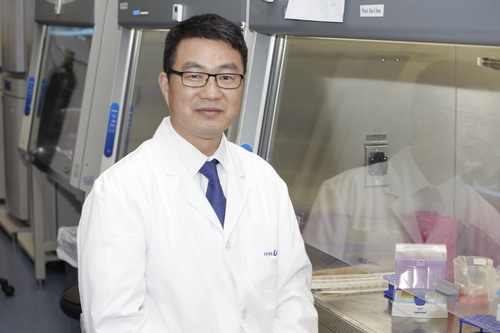 UM professor Chen Xin
UM professor Chen Xin
The State Key Laboratory of Quality Research in Chinese Medicine (QRCM Lab), Institute of Chinese Medical Sciences (ICMS), University of Macau (UM), and the National Cancer Institute (NCI), National Institutes of Health in the United States, have made significant progress in a collaborative research project on safer and more effective treatment for cancer and autoimmune diseases. The related findings have been published in scientific journals under Nature magazine. Researchers from UM and the NCI established that TNFR2 (tumor necrosis factor receptor 2) plays an important role in the proper functioning and proliferation of T cells, especially regulatory T (Treg) cells. This finding not only corrects a theoretical misconception in immunology, but also paves the way for developing safer and more effective drugs for tumour and autoimmune diseases. Earlier this month, two papers about the research findings, namely ‘Paradoxical Effects of Targeting TNF Signalling in the Treatment of Autoimmunity’, and ‘TNFR2 Expression by CD4 Effector T Cells Is Required to Induce Full-fledged Experimental Colitis’, were published in Nature Reviews Rheumatology, and Scientific Reports, respectively. UM professor Chen Xin is the first author of both papers. Since its founding, the QRCM Lab has been committed to nurturing collaboration with internationally renowned institutions in scientific research and personnel training. The lab and the NCI have signed a collaboration agreement aimed to promote collaboration in studying the mechanism of action of traditional Chinese medicines in regulating the immune system, which has produced many impactful results. So far scientists from UM and the NCI have co-published seven research papers, in Nature Medicine, Nature Reviews Rheumatology, FASEB Journal, Journal of Immunology, Frontiers in Immunology, Scientific Reports, and Cellular and Molecular Immunology, respectively. More research findings are expected to be published soon.


